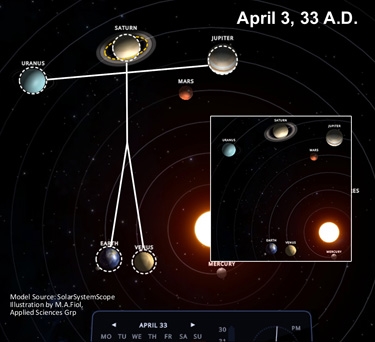- the general unability of the hoi polloi (especially if not civilized, see the "fool" Galatians) to represent for themselves a cosmic crucifixion, if not by using earthly images of the crucifixion (even if derived from OT scriptures).
- the particular favor to the idea of an earthly image of the crucifixion by the Judaizers, since the Jewish Messiah had to be (for the Jewish mainstream) an earthly figure.
This explains why the first gospels were written, at the end.
I note that some modern living critics, even if mythicists, are affected themselves by this trend.
Probably, a modern mythicist (G. A. Wells in primis) who places the death of Jesus in Paul on the earth and not in outer space is affected by this Judaizing trend without knowing it.



